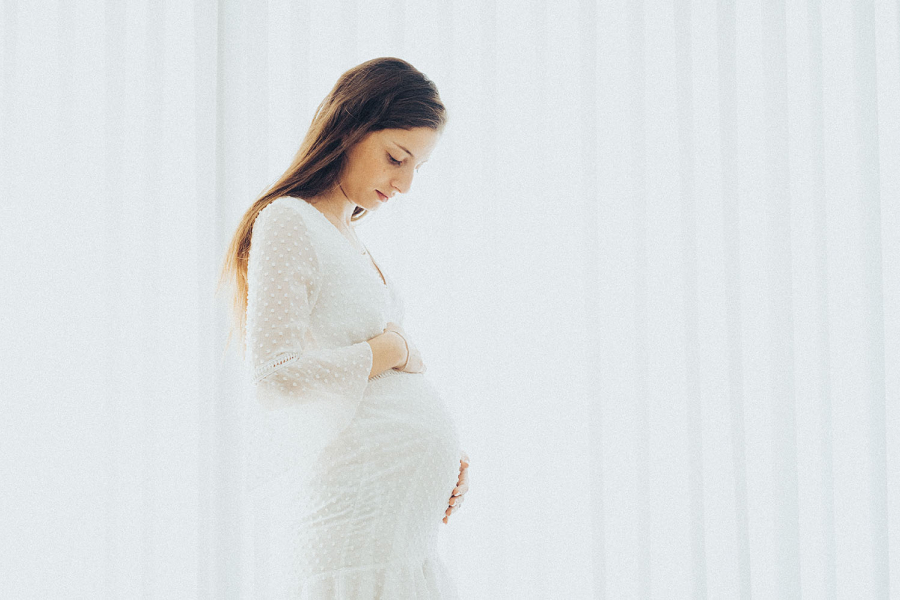Stillbirth
Stillbirth is a term that describes the birth of a fetus that has died in the womb, after Week 22 (intentionally or naturally) including loss during the childbirth itself.
The loss of a pregnancy and a stillbirth is a difficult, life-shattering event for parents where in one moment, their dreams shatter and they find themselves coping with overwhelming grief and loss.
It is impossible to compare one couple who experienced a stillbirth with another couple. Every parent grieves in their own way, ranging between a spectrum of various emotions: crying, anger, sense of injustice, self-blame, etc. Whether the stillbirth occurred due to a known risk factor or a diagnosis of a severe defect that resulted in a decision to terminate the pregnancy - coping with loss is difficult and these feelings are completely natural.
Risk factors
Unfortunately, a stillbirth is not a rare condition, and in Israel, approximately 1.8% of births per year are stillbirths.
As a rule, several medical conditions can be said to increase the risk of a stillbirth:
- Women who are obese.
- Multiple pregnancy.
- Intrauterine infections.
- Diabetes.
- Hypertension.
- Autoimmune diseases.
- Kidney diseases.
- Thyroid gland diseases.
- Advanced maternal age.
It is also now known that fetal genetic disorders also directly impact the chance of a normal birth.
More information about High-Risk Pregnancy
Coping after loss and support from the environment
It is important to talk about the incident in order to and process the stillbirth with yourself and among yourselves, and share your feelings and emotions with those around you.
To make coping easier, consider joining relevant support groups that can lend a suitable shoulder to cry on, seek professional psychological or psychiatric help if necessary, and in some cases, involve medication.
Already in the hospital, you will receive emotional and professional support from the medical, obstetrical and social services staff (Hebrew). With their help, you can join an appropriate support group, and while simultaneously joining support groups on Facebook and websites dedicated to the subject.
Every decision is the right decision
Stillbirth is a difficult and challenging process for the parents, particularly the mother. The medical staff tries to be there for the mother to provide her with everything she needs in these difficult moments. One of the most difficult issues in the process is the parents’ decision oon whether to see the infant after the birth. The decision in this case is emotional, personal and subject to the mother and partner’s sole discretion.
Other complex issues that must be decided upon involve burial with Hevrat Kadisha - whether to participate in the funeral and whether to allow an autopsy to be performed.
Studies conducted on parents' coping with a stillbirth found that naming the newborn helps process the grief and loss. In hospital delivery rooms, attempts are made to assist the process through various means, such as giving an object that symbolizes the newborn, such as a hat, a handprint or footprint, the newborn's glove, etc. More than a few parents who have experienced a stillbirth feel no need for tangible symbols. For them, the reality is sufficiently tangible.
The role of the support team is to provide parents with the information they need to decide how they want to deal with these issues, but the final decision is theirs alone, and every decision is the right one.
Moving on alongside the loss
Feelings of guilt that may arise in parents following a stillbirth are completely understandable and natural. It is difficult, particularly for the mother, to avoid these thoughts. It is, however, important to remember that as parents, you did the best you could, at any given moment, with the information available to you and with the medical monitoring that accompanied the pregnancy. The desire to find "guilty people" is also understandable in this sensitive situation, and with all the difficulty of the matter, it is important to remember that in the vast majority of cases no one is to blame.
Give yourselves the time and space to grieve, both as a couple and individually. A supportive, containing and embracing environment as well as professional help when necessary, will help you cope with the difficulties, process the tragic event that you have experienced and feel ready to return to normalcy.
It is also important to pay attention to signs that may indicate postpartum depression in both the mother and the partner, such as difficulty sleeping and lack of appetite or loss of interest in life. In this case, it is important to alleviate the suffering through professional treatment and support.
And, of course, to never lose hope! Remember that even after a stillbirth, it is usually possible to experience another, healthy and normal pregnancy and leave the hospital with a baby in hand.

















